Bass CDs
New Album: Bassist Or Bareket, Sahar
Celebrated Bassist Or Bareket Announces the Release of His Third Album as a Bandleader, Sahar.
Enja Records is pleased to announce bassist and composer Or Bareket’s enthralling third album as a bandleader, Sahar. Bareket, who is known widely as a first-call bassist for such artists as Leon Parker, Joel Ross, Ari Hoenig, Etienne Charles and Camila Meza, demonstrates his compositional mastery and instrumental acuity onSahar. The album’s tracks are adorned with potent (and sometimes wistful) melodic refrains, rife with deep harmonic intrigue bubbling with intensity. Composed and recorded during the wake of the Covid-19 pandemic, a rare moment of rest for Bareket, Sahar captures the bassist on a decidedly new and fresh artistic trajectory, performing with a new generation of virtuosic talent including Morgan Guerin on tenor saxophone, EWI and organ, Jeremy Corren on piano and Fender Rhodes and Savannah Harris on drums and percussion. Prominent vibraphonist Joel Ross produced the recording, co-arranged the music and added some auxiliary percussion.
The album’s title ‘Sahar’ holds multiple definitions in semitic languages. In modern Hebrew, ‘Sáhar’ simply translates to ‘crescent’ while in various Arabic dialects, it translates to ‘just before dawn,’ ‘early morning,’ and ‘insomnia.’ On Bareket’s record, he explores the poetic meaning of ‘Sahar’ — the dream-like state one arrives in after staying up all night ruminating and yearning; an encounter that feels suspended in infinity, outside the waking experience of the passage of time.
In many ways, ‘Sahar’ describes Bareket’s lived experience during the creation of this material. Amidst the pandemic’s imposed isolation, a moment Bareket refers to as “the complete disruption of the experience of linear time”, the bassist found solace in creation. “I entered March 2020 in a state of exhaustion and reflection, wrapping up a six-month run of nearly seamless back-to-back tours with different bands …including a week in Morocco with trumpeter Etienne Charles.”
The theme of reflection runs deep on Sahar and the compositions were inspired in part by Bareket’s own ruminations on those that he has lost, namely, both his maternal and paternal grandfathers. Perhaps, this reflective period began that week in Morocco with Charles. Bareket remarks “This was my first time visiting the country, specifically Tangier, the hometown of my maternal grandfather, Rabbi Mordechai Marcos Edery… I was really excited to visit the place where he was born and grew up, the place where the Edery family had lived for as far back as our family records could tell. I expected that some missing puzzle piece would be revealed while I was there.” After finding that the entire neighborhood had been demolished and rebuilt, Bareket called his mother, Mordechai’s daughter, to ask if her father had ever talked about Tangier. She revealed that he didn’t much, and that he left for a reason – just like she left her home of Argentina, drawing a parallel to Baraket’s own experience leaving Israel. “I felt the closest to Mordechai I’ve ever felt, upon hearing this. I accepted this moment as my missing puzzle piece,” he realized. Upon his return to the United States, Bareket received the news that his paternal grandfather, Asher Bareket, had now passed away as well. As he waded through the emotions of a recent loss, he was reminded that Asher had given him his very first bass. Spurring a direction and an outlet for grief and reflection, the bassist turned to composition.
Sahar begins with the pared-down “Root System”, a reflective piece with Bareket at the helm, his bass spinning a melodic narrative, inviting the listener into his inner world of sonacy and rhythm. The composer braids his roots (both familial and musical) and those found in nature. “It occurred to me while working on this album that when people refer to “roots” in the context of music or cultural heritage, we think of something fixed and final … But the actual roots of a tree have a reciprocal and dynamic relationship with the rest of the tree, circulating water, nutrients, and light back and forth throughout the organism.”
“SOIL” demonstrates the deeply soulful and decidedly modern sound of the full ensemble. Corren doubles the melody line that Guerin presents on the EWI and then the two engage in some striking trades during the solo section, while Bareket and Harris supply an unshakable groove. “TEMPERANCE” begins in an intimate fashion with Corren stating a melodic motif which gets doubled by Guerin on tenor sax and becomes a repeated motif throughout the piece, building in intensity throughout. The piece climaxes at Harris’ solo over the stated melody. “Kapara” features a stunning bass intro by Bareket, his melodic invention on full display. A lyrical melody stated by Guerin on the EWI leads to a solo from the bandleader, showcasing his distinct lyricism, rhythmic dexterity, and groove-centric approach. A full demonstration of the dynamic capabilities of the ensemble, the group’s bravado broadens while Guerin takes a solo over the tune’s harmonic changes.
Bareket touches on his feeling of loss and reflection in a more direct way with “A Lullaby For Troubled Ancestors”, a piece which lives within a quiet intensity, marrying a tender nuance with rhythmic and melodic interplay between his bass lines and melody. The album’s closing piece, the title track “Sahar”, offers sweeping melodies and – fitting to the meaning of the title – leaves space for reflection. Bareket seems to reflect on the notion of isolation with a piece that stretches the idea of time. On the pandemic, he says that while it was stressful and frightening, it uncovered new ways to exist within time and conceive of it, in life and in music. He asks: “If time is not linear but rather cyclical, spiral, static, or just non-existent, how does that affect our understanding of our personal and collective histories? And what kind of music might arise from different conceptions of time?”
“The experience of real kinship (not just a genetic one) with my grandfathers— men that I otherwise have deep differences and disagreements with— has shaped the music on the new album in subtle and literal ways. Working on it throughout the pandemic lockdown and the obliteration of the linear sense of time often felt like my ancestors and I were existing in parallel, simultaneous realities, rather than on opposite ends of a line”, the composer indicates. With Sahar, Bareket invites the listener to walk through time with him, reflecting on those that have been lost and celebrating them through song.
Visit online at orbareket.com
Bass CDs
Reissue: Geddy Lee’s My Favourite Headache and Alex Lifeson’s Victor
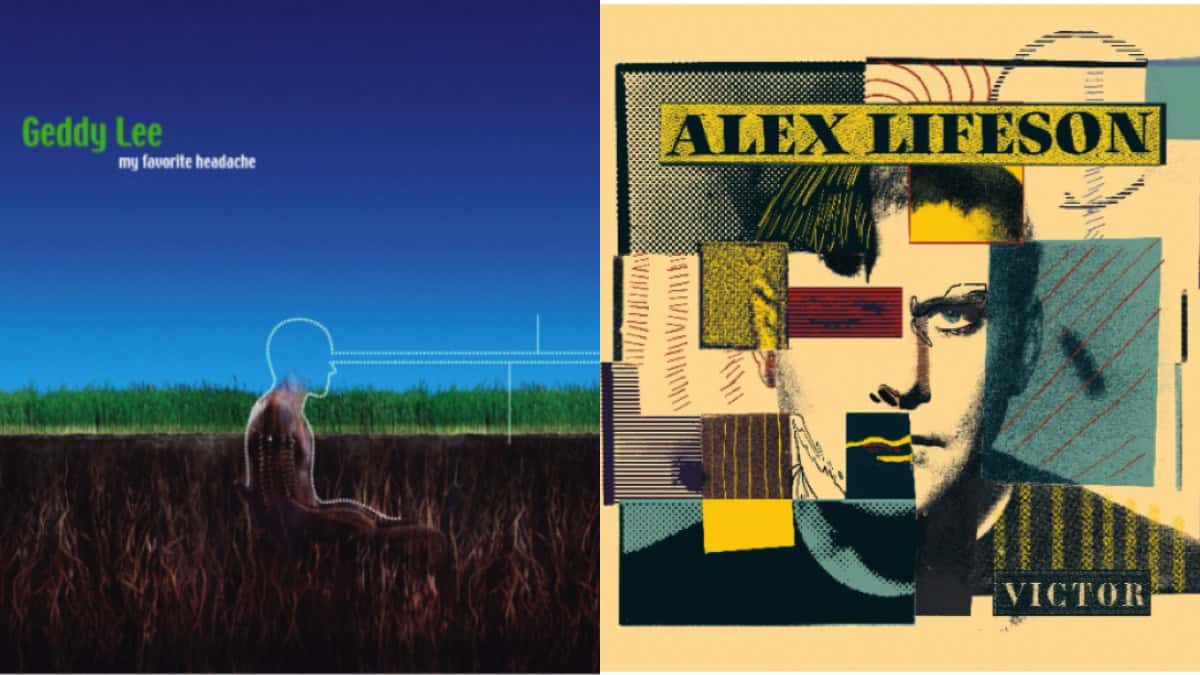
In an exciting announcement for Rush fans and rock enthusiasts alike, Anthem Records in Canada and Rhino Records will reissue the first-ever solo albums of Alex Lifeson and Geddy Lee. Lifeson’s 1996 album Victor and Lee’s 2000 offering My Favourite Headache will be re-released on August 9, 2024, in various formats, including a range of vinyl configurations.
My Favourite Headache, Geddy Lee’s only solo album to date, was initially released on November 14, 2000. This reissue marks its first vinyl pressing since a limited-edition Record Store Day exclusive in 2019. The fourth side of the album features two instrumental mixes. Produced by Lee, Ben Mink, and David Leonard, the album includes contributions from Mink and drummers Matt Cameron (Soundgarden/Pearl Jam) and Jeremy Taggart (Our Lady Peace).
Victor, originally released on January 9, 1996, marks Alex Lifeson’s solo debut. Lifeson took on the roles of songwriter, producer, and mixer for this album. For the first time, Victor will be available on vinyl, featuring a complete remix by Lifeson himself to enhance the audio quality. The fourth side of the album includes four instrumental tracks previously exclusive to Lifeson’s website. Guest artists include lead vocalist Edwin from I Mother Earth, Primus bassist Les Claypool, and Canadian powerhouse vocalist Lisa Dalbello. The 15-song collection is paired with striking 2024 reimagined artwork by Fantoons Animation Studios.
For more details on the Geddy Lee reissue and to preorder, https://lnk.to/MyFavouriteHeadache
For more details on the Alex Lifeson reissue and to preorder, https://lnk.to/AlexLifesonVictor
Bass CDs
New Album: Ben Wolfe, The Understated
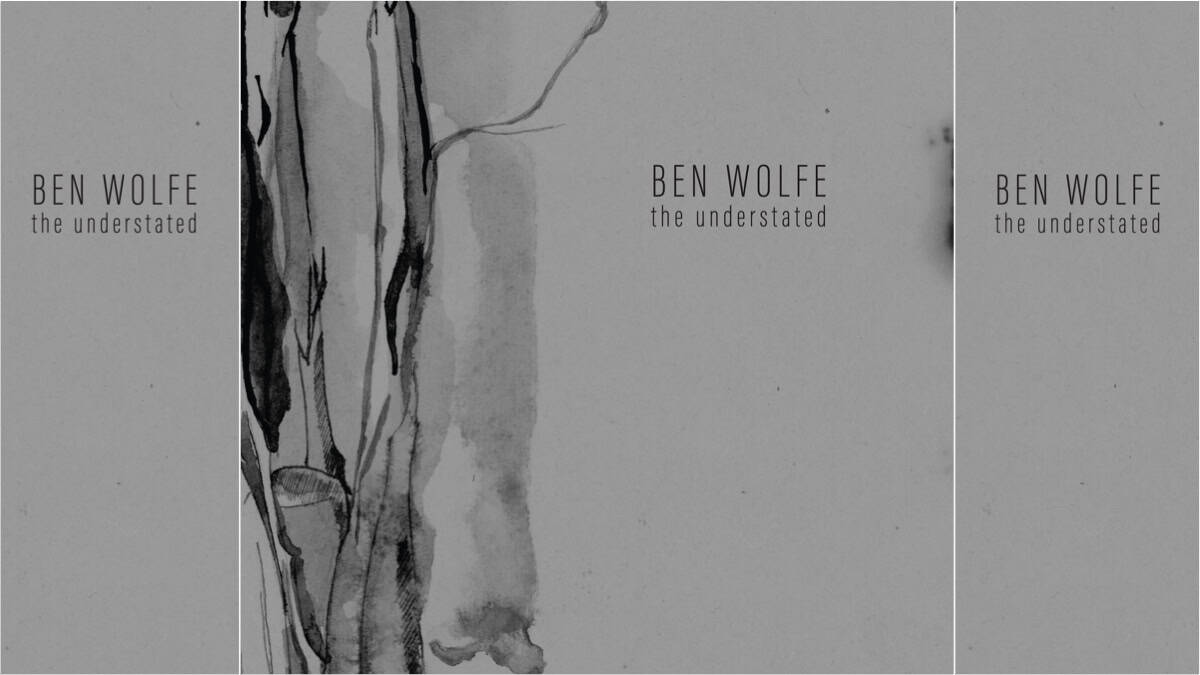
Acclaimed bassist and composer Ben Wolfe is thrilled to announce the August 9, 2024 release of The Understated.
This evocative new album features a collection of new original compositions by Wolfe paired, with re-imaginings of some of the composer’s classic material, with a particular emphasis on the ballad song-form. The album features ten tracks, five of which are ballads – a bold move for any composer – Wolfe creates a cohesive narrative here that challenges the listeners perception of the classic ballad. The Understated features Wolfe alongside artists who make up the very frontline of modern jazz, including pianist Orrin Evans, tenor saxophonist Nicole Glover, drummer Aaron Kimmel, guitarist Russell Malone and pianist Sullivan Fortner.
Wolfe has always been drawn to finding beauty in subtlety. He perceives a certain tranquility and elegance in the Coltrane Quartet, Louis Armstrong’s Hot Fives and Sevens, the legendary Miles Davis bands and rhythm sections, and the music of Charlie Parker. While he, of course, revels at the immense world-building energy of this music, it’s the “other side” – the elusive, magical aspect that endlessly captivates him – the understated. The composer draws inspiration most from the ensemble work of these hallmark jazz ensembles. Despite the individual parts being extraordinarily beautiful on their own, the musicians in these archetypal ensembles play only what is needed to serve the music, paying particular attention to the band-sound more-so than their individual sound. The Understated embodies this ethos with a tremendously impactful ensemble-oriented approach.
Wolfe sought to continue the thread started by “Lullaby in D” from his previous critically acclaimed release Unjust. Wolfe indicates, “Something about that take was so perfect to me. It had been brought to life, and it had that ensemble thing.” Wolfe assembled the quartet who recorded “Lullaby” (including longtime collaborator Orrin Evans, as well as recent frequent collaborators Aaron Kimmel and Nicole Glover) and two very special guests, Russell Malone and Sullivan Fortner. The recording process took place in one room with no headphones or isolation booths, further emphasizing the group’s collective awareness.
This record succeeds in bringing Wolfe’s expansive music to life through extremely conscientious group playing. Nothing is forced or pushed; everything that needs to be stated is stated. The single from the album, “Waltz,” encapsulates the spirit of the project. Wolfe says, “I view albums like a complete painting, so singles have been difficult for me. This song is very much in the spirit of the whole but doesn’t give away the record.” The piece features a sentimental melody delivered with grace by tenor saxophonist Nicole Glover, before Glover and Evans embark on stirring solos dancing in and out of the tune’s harmony.
Other new original compositions featured here include “Ballad in B”, which perhaps best demonstrates the group’s stunning cohesion. This tune is a refreshing diversion as it features a serene repeated melody without overt melodic improvisation. The following track, “Anagram”, begins with Kimmel’s rhythmic refrains and a unison melody played by Glover and Wolfe and is a true ensemble piece. On this track, Wolfe shines with a lyrical solo. The moody short interlude “So Indeed” is a lyrical masterwork that leaves the listener wanting even more. “Beautiful You” features master guitarist Russell Malone on the track’s melody. The emphasis here on restrained lyricism is a prime reminder of the old adage “it’s not the notes you play, it’s the notes you don’t play”. Each pocket of space in between melodic moments leaves room for the listener to breathe deeper and deeper into the song. The driving “Triangle Man” features fantastic improvisation from Glover and Kimmel. The tender “Barely Spoken” concludes the album with a feature for pianist Sullivan Fortner.
The album also weaves in references to Wolfe’s past works, creating a personal musical universe. “The Poet Speaks” is the opening track on his first record, 13 Sketches. “Occam’s Razor” was composed years ago for a collaboration with a choreographer and painter, and was a much different composition in its original form. “Love Is Near” was originally found on The Whisperer. With ballads in particular, Ben uses voicings and sounds that represent certain things to him, intentionally referencing his other compositions to generate connections between his songs.
Wolfe’s tremendous compositions on this album are also influenced by the group of musicians that he assembled for this release. Wolfe remarks “One of the things these five musicians share in common is that not only are they true ensemble players, they will always play something unexpected and special.” Listeners will find calm and beauty within the ensemble performances throughout The Understated.
Visit online at benwolfe.com/
Bass CDs
New Album: Orlando le Fleming, Wandering Talk
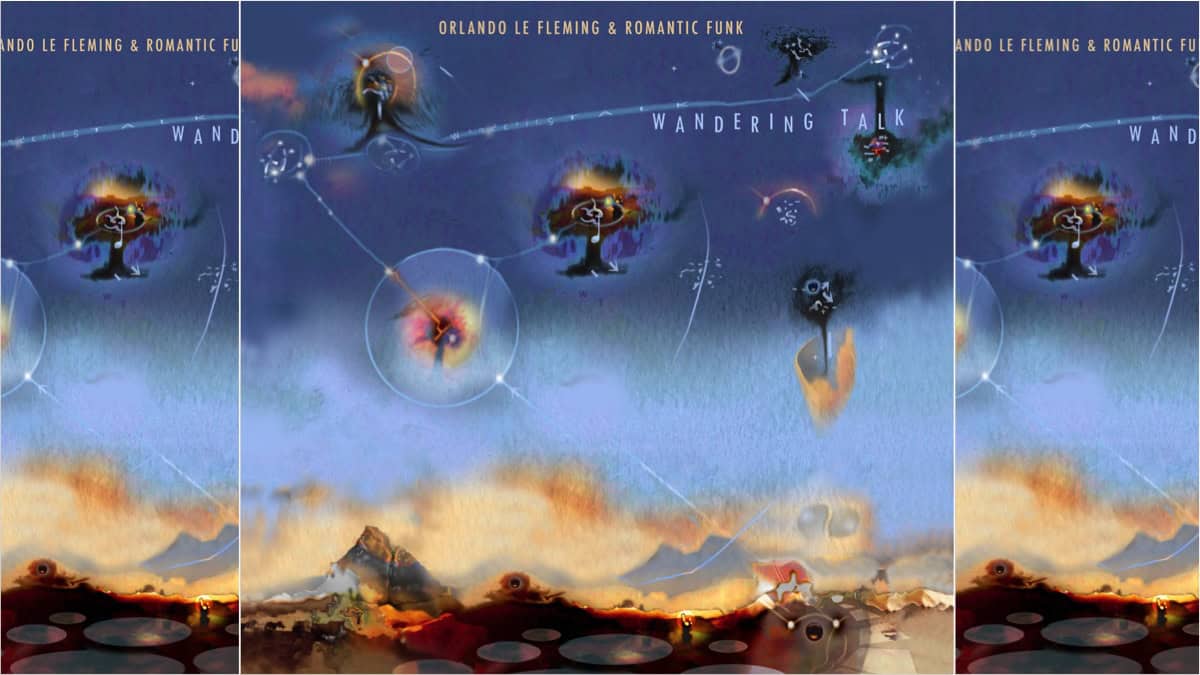
Bassist, band leader, and composer Orlando le Fleming continues to make music that crosses genres as readily as he crosses the Atlantic, with this new album ‘Wandering Talk’, to be released physically on 23rd August via the UK’s premiere jazz label, Whirlwind Recordings.
After 20 years in New York City, he’s back in his native UK, forging new pathways and renewing old partnerships. His love for the acoustic tradition continues unabated alongside his deep affection for the robust, muscular electric fusion that emerged in the 1980s, and he has received critical acclaim from media including The Guardian, Financial Times, Jazzwise, and All About Jazz among others. He has also toured and recorded with some of the world’s greatest jazz musicians including Branford Marsalis, Kurt Rosenwinkel, Antonio Sanchez, Ari Hoenig, and Wayne Krantz.
The Romantic Funk project was born in New York’s legendary 55 Bar to explore that legacy: now the new album ‘Wandering Talk’ builds on the critical acclaim generated by ‘The Unfamiliar’ (2020), building on the framework with a set of collaborators that brings together London and New York, past and present, acoustic, and electric, and merges it all into a spectacular whole.
Following the same principles that served the project in NYC, le Fleming booked four Friday nights at London’s renowned Vortex Club to workshop the music that would become the album, with a rotating cast of players which he honed down into the final line-up. Old London friends Tom Cawley (piano/keys) and James Maddren (drums) completed the rhythm section. New acquaintance Nathaniel Facey was picked from the ranks of the UK’s brightest young saxophone players. NYC stalwart Philip Dizack flew in from the US to play trumpet and reaching back to Orlando’s school days and forward to his own family, one-time classmate Chris Martin (Coldplay) and his own daughter Nadia combined to provide vocals on a special setting of Rumi’s poetry.
As before, the music combines fusion’s flash and fire with a contemporary sensibility. This time, Orlando’s questing spirit sends his superb band forward to investigate fresh areas of creativity in dynamic and texture.
Visit online at orlandolefleming.com
Bass CDs
Album: John Entwistle, Rarities Oxhumed – Volume Two
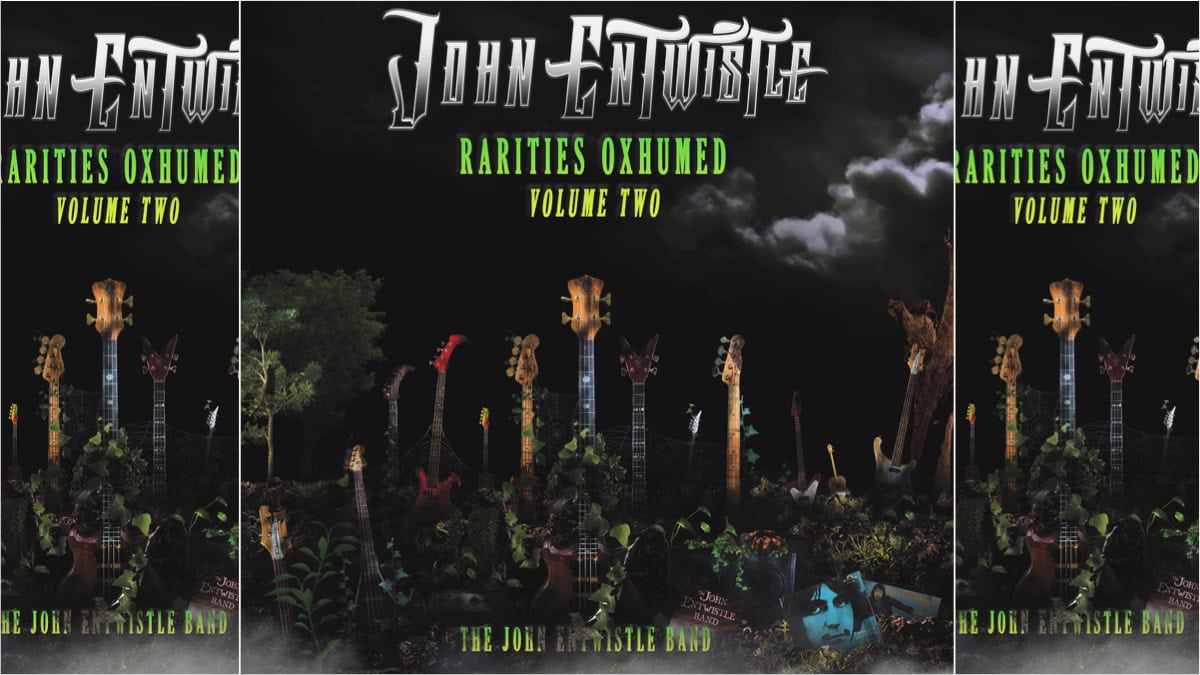
Album: John Entwistle, Rarities Oxhumed – Volume Two
Rarities Oxhumed – Volume Two is the second of the series of posthumous releases coming from John Entwistle.
Rarities Oxhumed – Volume Two is a compilation that was curated by drummer Steve Luongo, who served as John Entwistle’s producer, bandmate, business partner and good friend for many years. As Luongo states, “When I agreed to do two volumes of John Entwistle rarities, I knew volume two had to be even better than volume one. It is!” The collection of songs on Volume Two are from his years with the John Entwistle Band and include re-mastered versions of studio tracks including “Endless Vacation”, alternate mixes of tracks like “Sometimes”, and live tracks including The Who cuts “Real Me”, “Long Live Rock” and an epic version of “Young Man Blues”. The latest preview track to be released is the Who cut “Had Enough.”
Listen to “Had Enough” here: push.fm/ps/hadenough
Rarities Oxhumed – Volume One was quickly embraced by longtime fans as it featured gems like “Bogey Man” featuring Keith Moon, “Where You Going Now” (demo for the Who), and a raw live version of “Trick of the Light” recorded during the John Entwistle Band’s final tour in 2001. Deko Entertainment is thrilled to have been able to bring both volumes of this unearthed music of John Entwistle to the fans and forever solidify him as one of the greatest rock musicians ever.
For more information, visit online at dekoentertainment.com/john-entwistle
Bass CDs
Album Review: Mark Egan, Cross Currents
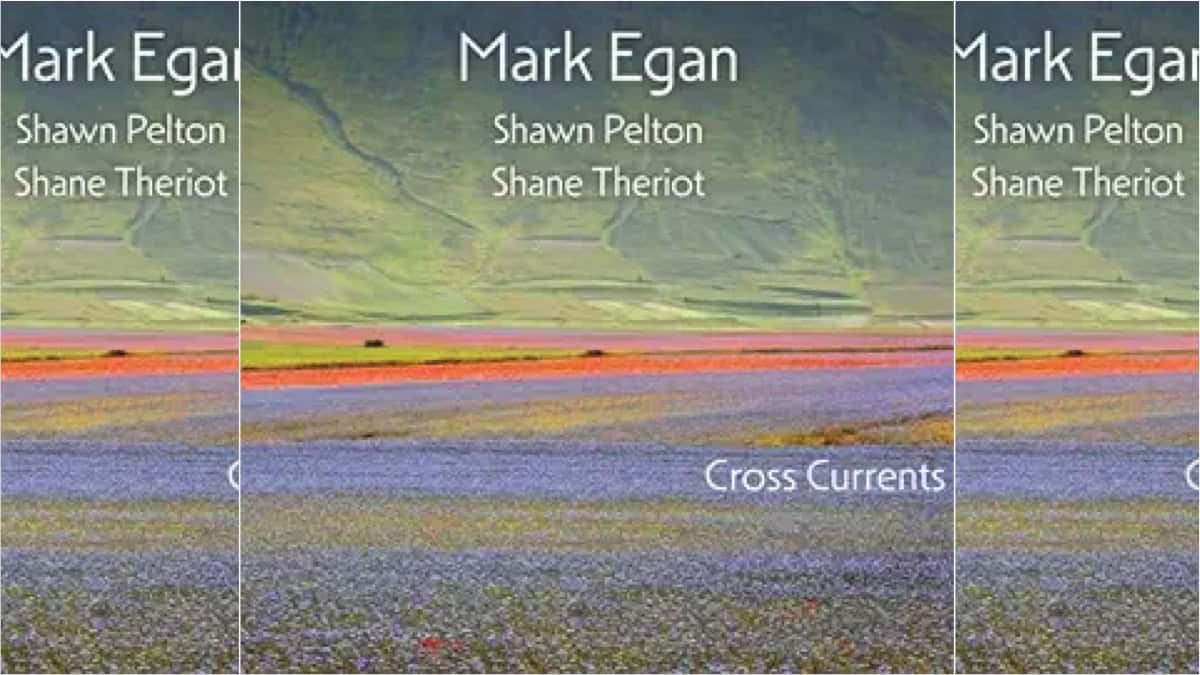
Mark Egan, Cross Currents…
It is exciting every time I get a new album from Mark Egan as he is such an amazingly versatile player and I never know what to expect (except for excellent artistry!) In his latest release, Mark has teamed up with Shawn Peyton on drums and Shane Theriot on guitar to bring us “Cross Currents”.
This collection of eleven tracks transports me to the Gulf Coast (New Orleans specifically). Mark’s fretless basses lay down a solid groove and lots of juicy solo work for this rootsy collection of funk, ambient, swamp-rock, second line, ballads, Cajun and even Indian Raga.
This trio is super-tight and the musicianship is flawless as each member has ample opportunity to shine. Even though each player is very talented in their own right, I feel that the collective energy is greater than just the sum of the players on this album. Each musician contributed to composing music for this project but the lion’s share are Mark’s original pieces.
I spent the summer of 1981 in New Orleans and this wonderful music takes me back to those fond memories. I participated in a wacky raft race on Lake Ponchatrain and this opening track elicits images of fun, sunshine, music, and great food.
This is another superb album that everyone will enjoy. Get your copy today! Cross Currents is available online at Amazon.com. Visit Mark online at markegan.com.











